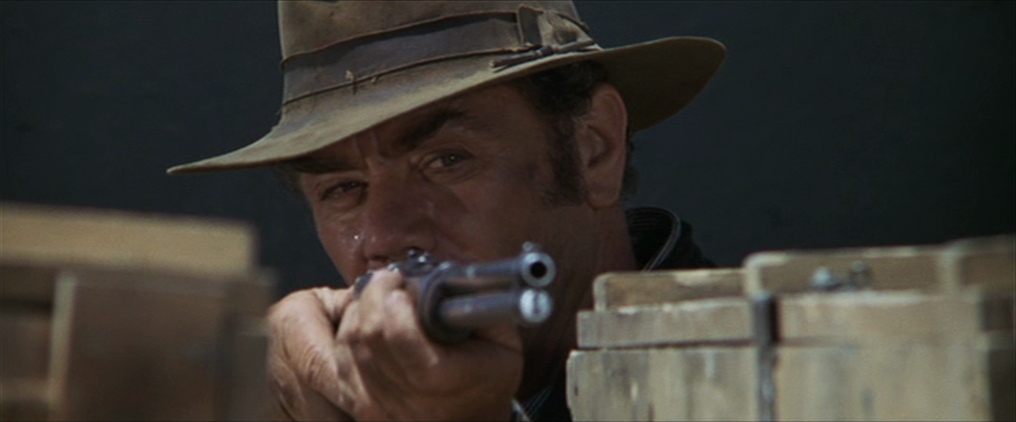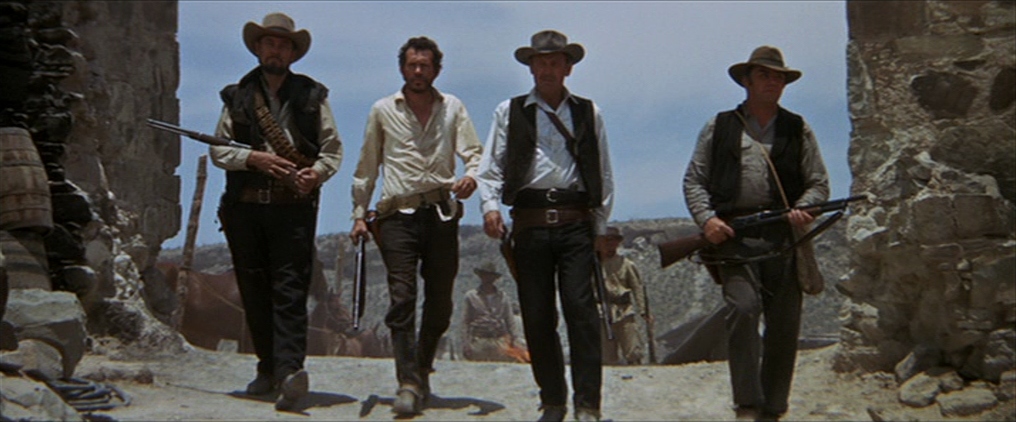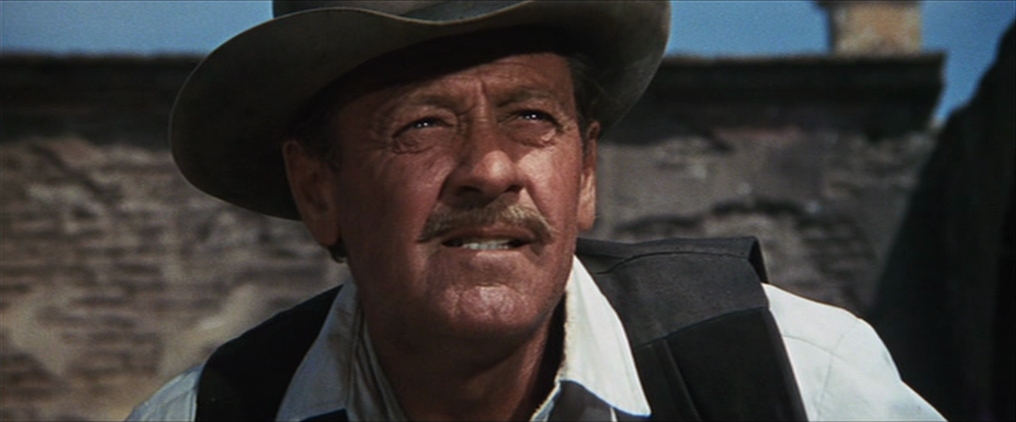| Rowan A. Smith |

The Wild Bunch plays at the Trylon Cinema from Sunday, April 9 through Tuesday, April 11. Visit trylon.org for tickets and more information.
The Wild Bunch was a movie that for many years sat for me in a category most film-lovers are very familiar with: “I’ll get to it.” When I was a teenager, I watched a lot of the most beloved Westerns and didn’t find many I enjoyed. It wasn’t until I was in my late twenties that I started seeing Westerns I did enjoy and had to ask myself the dreadful question, “Have I been holding this preconceived and incorrect notion that I don’t like Westerns based off of an opinion I formed when I was a child?” I decided to be brave and give them another chance.
I’m glad I did. Particularly with The Wild Bunch, which is a fucking wild movie not just for its time — a movie that presents a true excess of violence, exposes the dark gray morality of the era, and lends itself to a much more personal experience for me than perhaps any other Western has.
The first time I watched it I was just a few days shy of turning 30. It was the late summer of 2020, a time I don’t think anybody looks back on particularly fondly, but for me was one of the worst periods of my life. My wife and I had separated in January of that year and at the time I had been unemployed for seven months and couldn’t find work. Because of that, when we split up I was forced to move back home with my parents, a prospect no one on the cusp of 30 relishes, but in my mind, this was a temporary setback. I would find a job and get things back on track. Six weeks later lockdown started. The year of deepest grief for the loss of my marriage was spent in almost total isolation. There was one point where I didn’t physically go outside of my house for four weeks. Sometimes I would go days without even speaking out loud. Looking back at that year, I’m actually surprised I made it through.

Anyways, I digress into my personal life only because I want to talk about what The Wild Bunch means to me personally. There are already plenty of essays out there about what The Wild Bunch means generally, or to Sam Peckinpah, or about the wild story of its production, the censorship, etc. If you want to read that, it already exists. The point is that, when I watched the film for the first time, I was profoundly alone. I felt betrayed, had been left by my partner of nearly ten years, and I was in a place of deeply arrested development.
Pike Bishop, the leader of The Wild Bunch gang (played by the legendary William Holden), is going through something somewhat similar at the outset of the film. His former partner Deke Thornton (Robert Ryan) has been tasked by the railroad to hunt down Bishop and his gang. Thornton doesn’t seem thrilled by his job; the film evokes a clear longing between the two men. Second-in-command Dutch (the immaculate as always Ernest Borgnine) angrily complains of their pursuit by Thornton and his alliance with the railroad, but Bishop is firm: he gave his word.
Later in the film we learn the truth: Thornton was captured by the authorities after being left behind by Bishop. Bishop chose to sacrifice the person who he was closest to in order to save himself. I’ve always identified with characters that are driven by guilt. I have myself been driven by guilt for large portions of my life. Let me tell you, I don’t recommend it. It is a path that leads to annihilation.

The men of The Wild Bunch have no issue doing things people with normal sensibilities would find reprehensible. They are not dashing Western heroes. They are by-any-means-necessary criminals who will use civilians as human shields without hesitation. But the film also shows them as caring as they are callous. The love and respect that they share for one another is obvious throughout the movie, and the relationship between Pike and Deke even feels homoerotic, at least as much as one was allowed to convey at the time. They dream of each other (quite literally). I certainly had friends at that time in my life, though most of our interactions had to take place online. But one thing The Wild Bunch reminded me of was the healing power of camaraderie. It was during that time that I started reaching out to old friends, rekindling relationships I had allowed to go dormant, and began filling my life with wonderful people who I love and who support me as I support them. This began what would end up becoming the happiest period of my entire adult life, and I’m not going to sit here and say that it’s all thanks to Sam Peckinpah, but it was definitely a case of seeing the right movie at the right time.
Without giving too much away, the ending typifies the consequences of a life guided by guilt. Pike feels he can’t make the same mistake twice. I don’t know if the choice that these men make at the end of this film is the “right” choice, but it is the only choice that makes sense for them. Peckinpah said that he wanted the violence of this film to be cathartic, even horrifying, but instead audiences have reveled in it. I’m not going to act like I’ve never reveled, but I do find the climax of the film to be particularly sad because of how inevitable it feels. It’s a rare thing for films with huge action set pieces like this to unambiguously show the despair. Peckinpah wanted to make a film that dispelled the myth of the American West, and in that he succeeded. But for myself personally, he also made a film that reminds me of the restorative powers of both companionship and forgiveness, and that we can learn from the mistakes of these men and make our own lives better.
Edited by Olga Tchepikova-Treon
